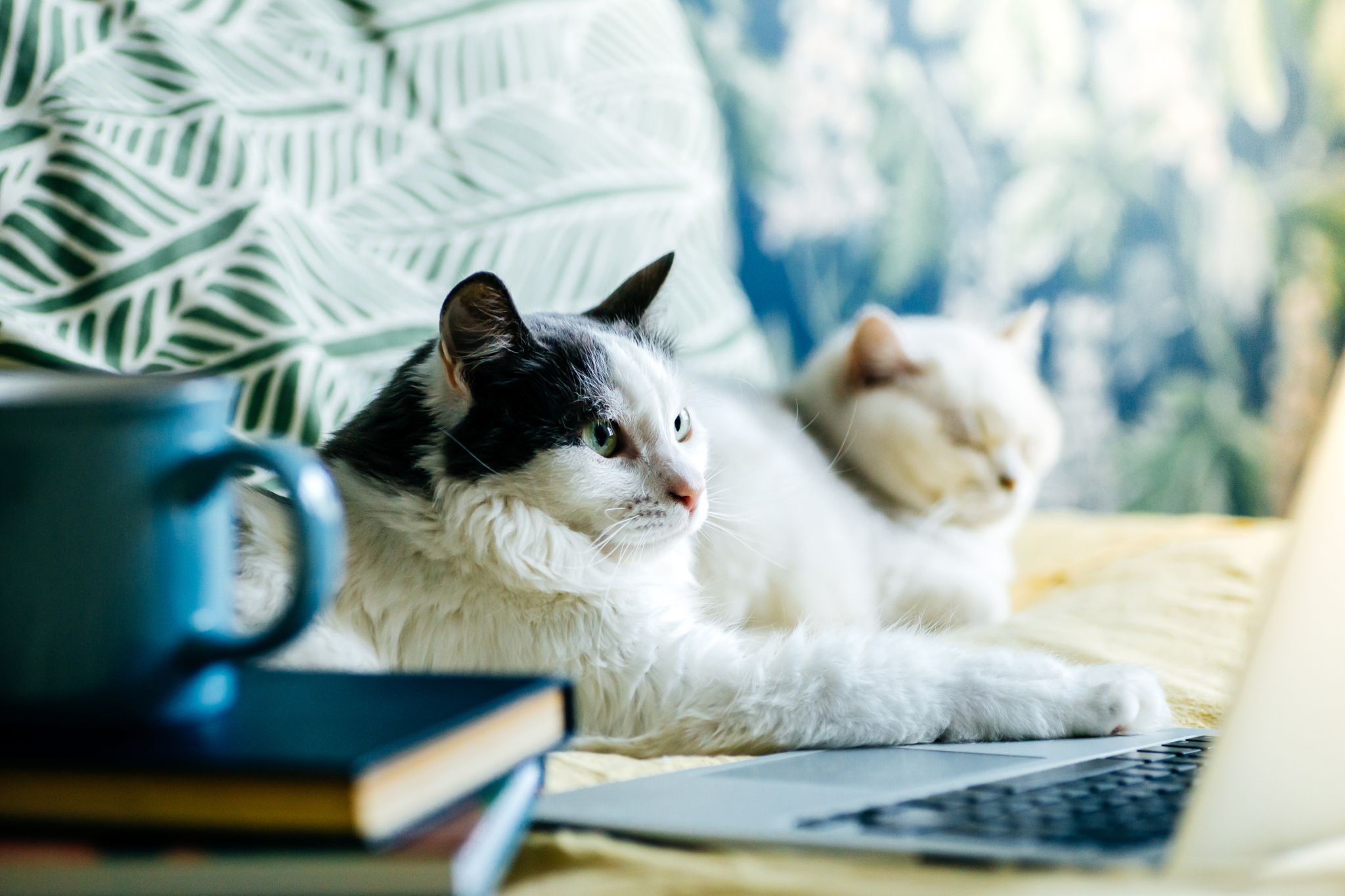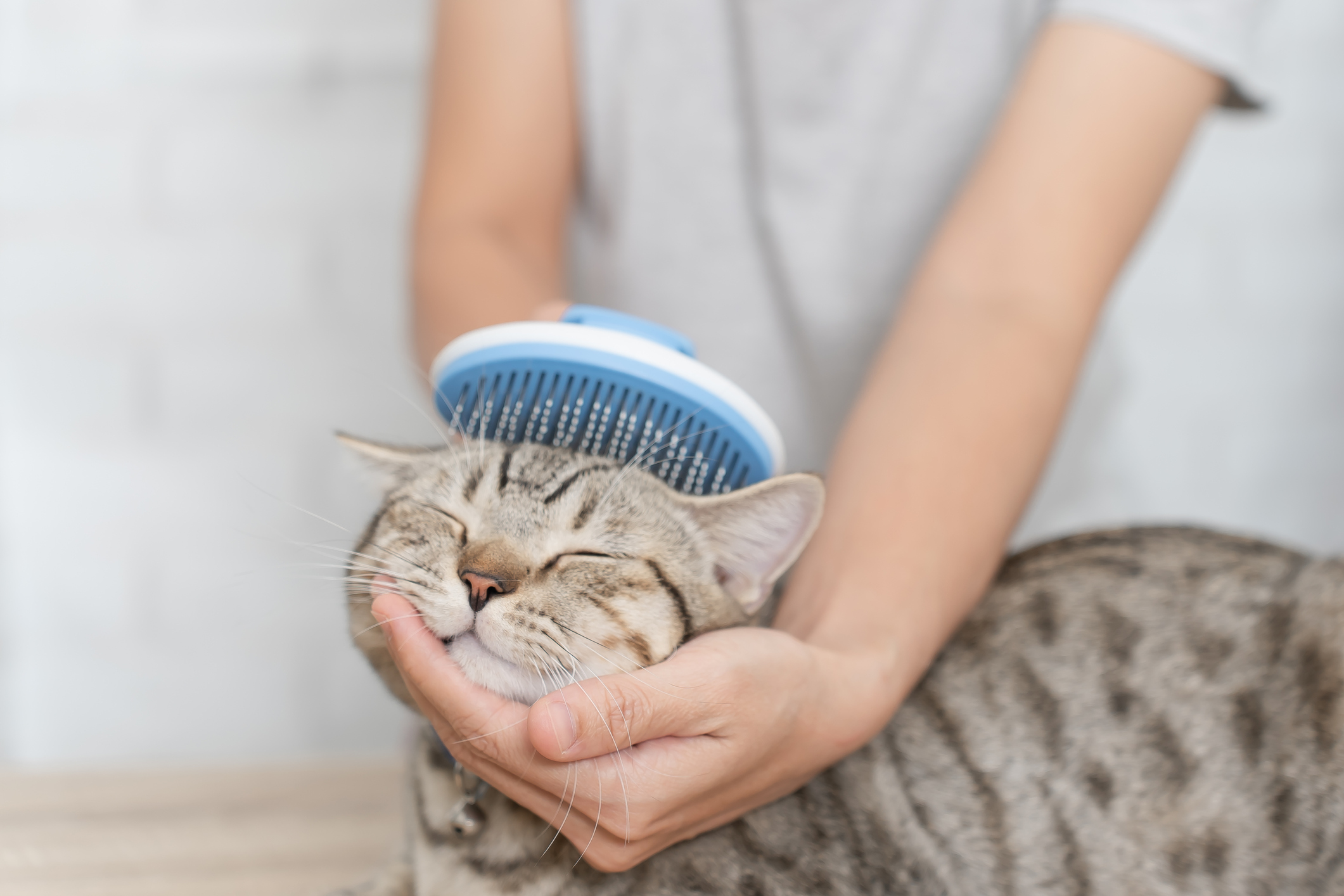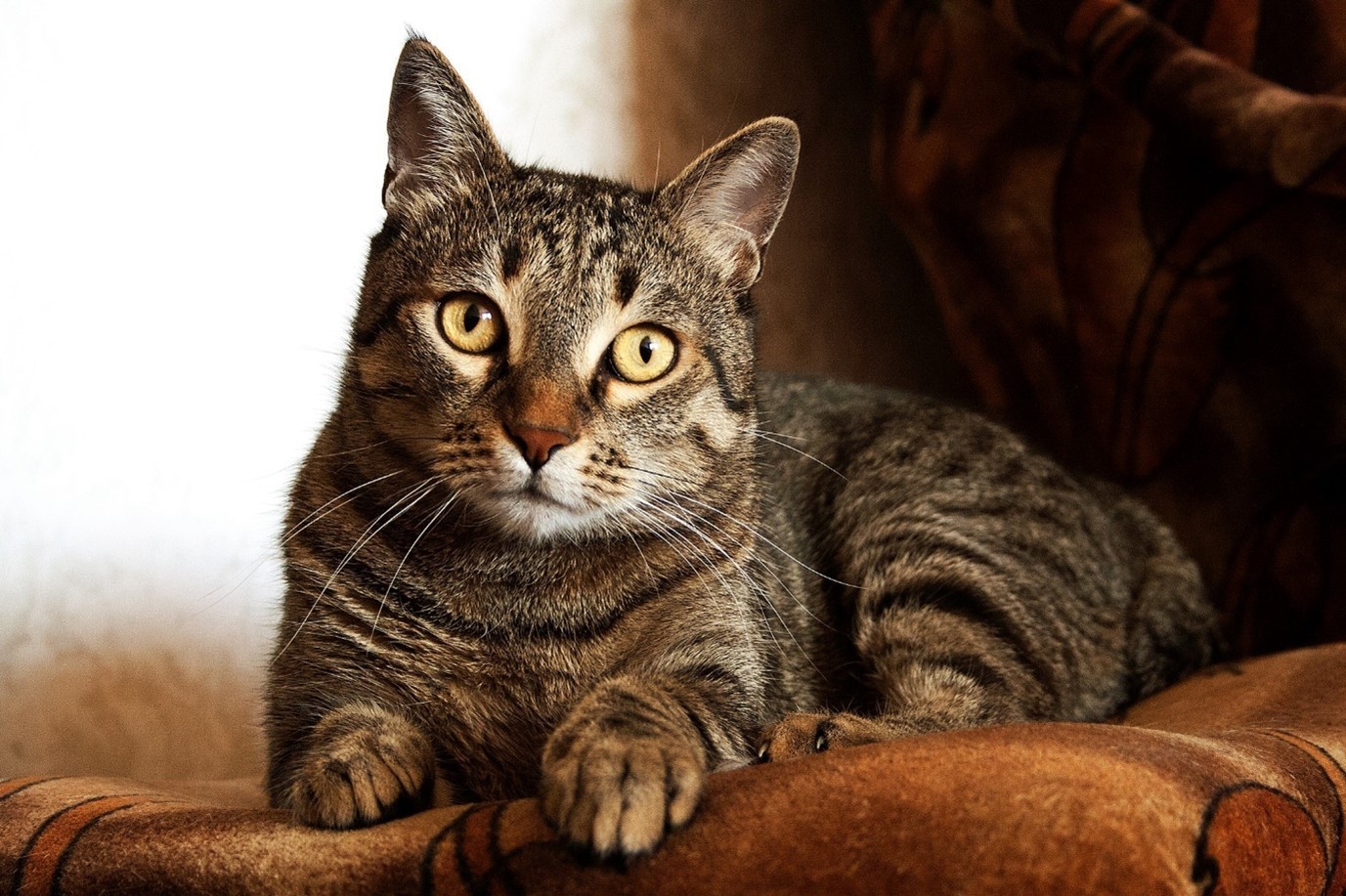1 - Provide easy access to everything they need
As cats age, they’re more prone to developing arthritis. To help a less mobile cat, make your home and their necessities, such as water bowls and litter trays, more accessible. This may mean placing water bowls and litter trays in more than one place. If you live in a house with an upper storey, you can put necessities on both floors. However, be mindful that an older cat may find climbing stairs difficult. If this is the case for your cat, have everything they need on one floor of your home.
If your cat can no longer jump onto their favourite chair or access a windowsill to sun themselves and watch the world go by, you can help them get there. Build or purchase carpeted box steps, ramps or pet stairs (carpet provides traction and prevents slipping and can also act as a scratching outlet).
Create spaces with warm bedding for their comfort. Place their litter box in a warm location too – expecting your cat to toilet in a cold room will put them off the process!
2 - Smaller meals are healthier
Proportioning your cat’s food and giving it to them throughout the day and night can improve their digestion. Talk to your veterinarian about how and when to transition your cat to a senior food plan. As with older people, a cat’s appetite will probably decrease as they age.

3 - Water, water, everywhere
Staying hydrated is essential, especially for senior cats as they can easily become constipated. Older cats are also prone to kidney disease as they age – even more so if they aren’t drinking enough water.
Feeding wet food and making it easy for your senior cat to find drinking water can increase their intake of water. Placing plenty of bowls of water and/or pet water fountains around the house at ground level can also entice your senior cat to drink more.
4 - Helping your senior cat pamper themselves
Older cats groom themselves less effectively than younger cats. This is often because cats with arthritis in their spine and hips find it painful to twist their body and groom themselves.
For cats, lack of grooming leads to matted fur, skin odour and inflammation. The skin of an older cat is also thinner and less elastic, has reduced blood circulation and is more prone to infection. You will need to help your cat keep their fur in good condition. Gentle brushing or combing will remove loose hairs, stimulate blood circulation and return lustre to your cat’s coat. To make regular grooming a pleasant experience, use calm and soothing tones when you speak to your cat, praising them as you brush. If your cat develops thick matting or knots in their coat, your vet may need to shave them off.
If your cat isn’t as active as they used to be or are using their scratching posts less often, their claws may need trimming. As part of your regular vet check-ups, ask your vet to trim your cat’s nails if needed.

5 - Daily Exercise and Mental Stimulation
Environmental enrichment is an essential part of your cat’s quality of life. Like us, as cats age they can become less active and have less energy to play. However, like us, older cats also need to stay physically active and mentally engaged to prevent boredom, stay healthy and improve their overall quality of life. Cats need places to climb and hide in, things to scratch and toys to play with. Even cats with arthritis need daily exercise to keep their joints working as much as possible.
You can use puzzle toys to encourage physical and mental engagement at mealtime. Explore opportunities for gentle ways to play with your senior cat. Try waving a wand or playing hide and seek with treats.
Having an active, younger cat can provide your senior cat with opportunities to interact and play. However, if you’re introducing a new cat to the household, it's important to give them plenty of time to adjust to each other. To help everyone get along, check out our guide to introducing new pets to existing ones.
Bringing another cat into your home needs to be carefully considered. Not all cats will benefit from a new companion and are content with just the companionship of their human.
6 - Keep a routine
Cats are creatures of habit and older cats especially enjoy a predictable routine. As cats get older, it’s more difficult for them to adapt to change. They can also become anxious, especially if they’re experiencing memory problems or dementia. Keeping a familiar schedule for mealtimes, medications, grooming and playtime will help reassure them.

7 - Rewarding a lifetime of companionship
Like us, cats are individuals. Some older cats prefer to be left alone but most will love spending time with their human family members. Allow extra time for play and bonding and make it a special time for both of you. Time spent together can be as simple as reading a book or watching TV together. We promise your cat will appreciate the extra time spent together.
8 - I don’t see and hear as well as I used to
Turning on a night light will help an older cat who has poor vision navigate your home at night. If your cat has become blind, call their name before you approach them and don’t pick them up unless it’s necessary.
If your cat has become deaf, always approach them from the front to avoid startling them.
If you don’t have a senior cat, but would like a senior cat as a pet, check out our blog on why you should adopt an older animal.
